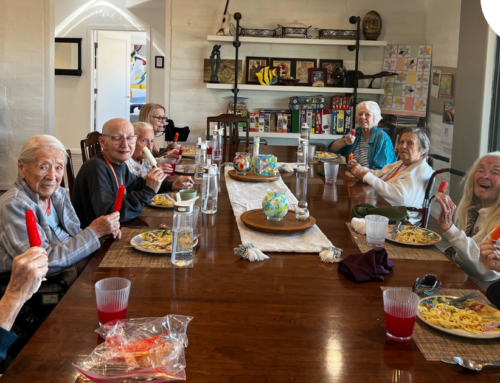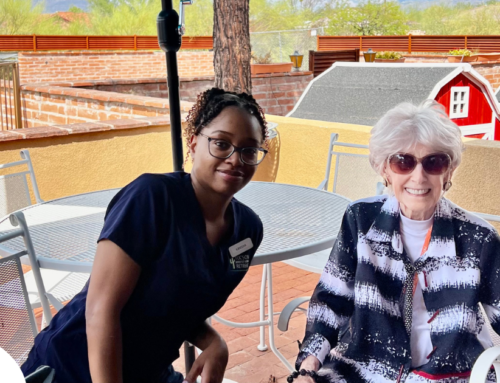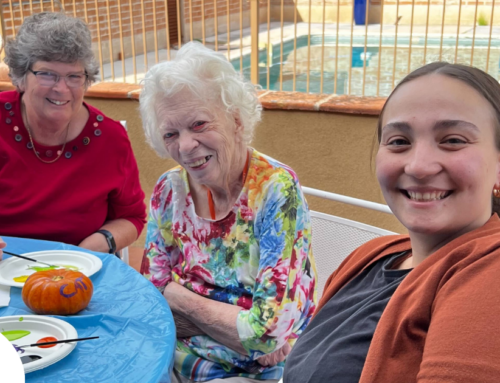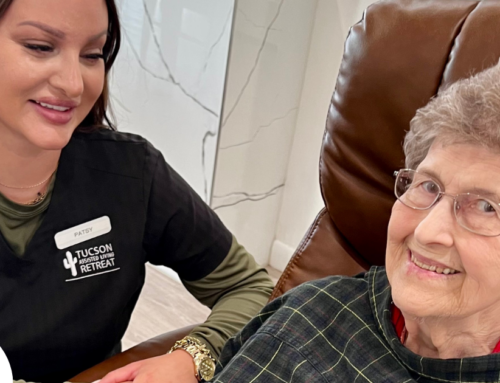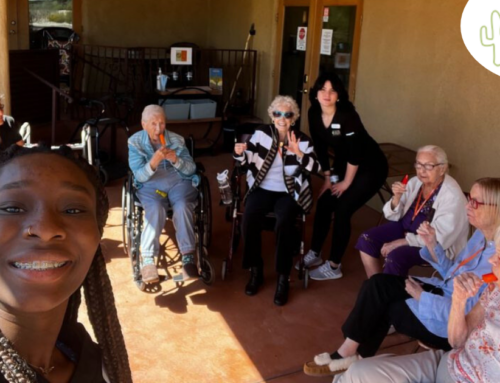A Day in the Life of a Caregiver – The Rewards and Challenges
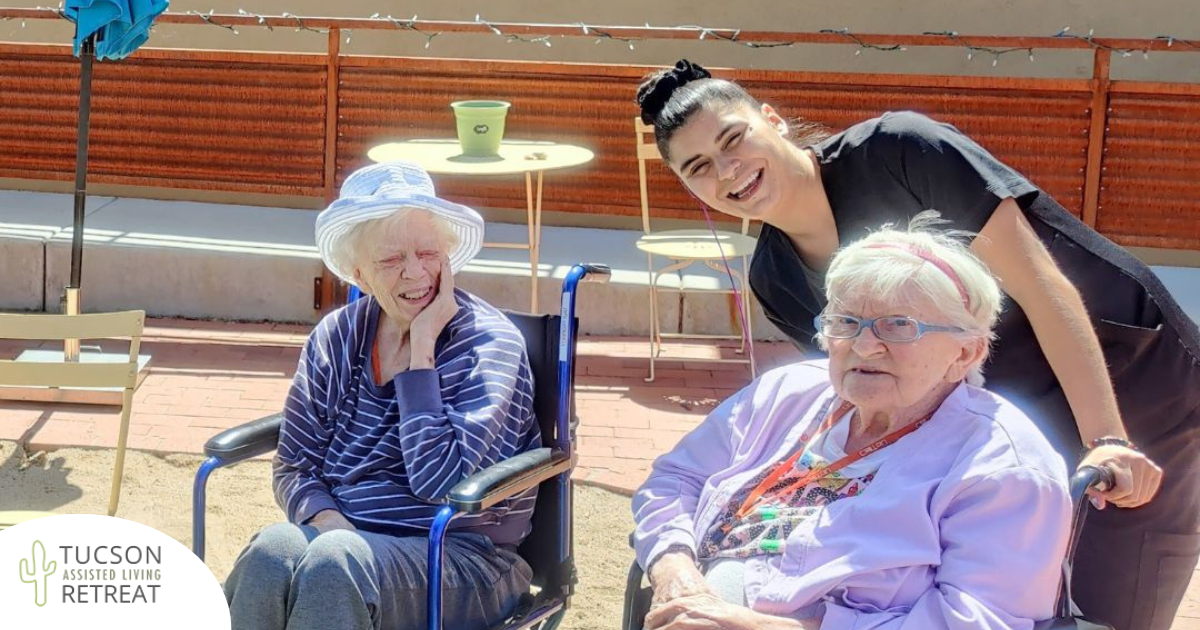
Assisted living facilities in a community like Tucson, AZ provide essential care and support for seniors requiring assistance with daily activities. At the heart of these facilities are the dedicated caregivers who work tirelessly to ensure the well-being and comfort of elderly residents. The remainder of this article will explore the rewarding and challenging aspects of a caregiver’s role in an assisted living setting while highlighting the duties, responsibilities, and impact they have on residents’ lives.
Understanding the Daily Role of Caregivers in Assisted Living
Caregivers employed by assisted living providers play a crucial role in helping residents maintain their independence, providing compassionate care, and creating a safe and nurturing environment. They work closely with residents, and their families, as well as administration and staff, to develop personalized care plans that address specific needs and preferences.
During a typical day, you might find caregivers assisting residents at the average assisted living facility in these ways:
Personal Care Assistance
One of the primary responsibilities of a caregiver is to assist residents with their daily personal care needs, including bathing, dressing, grooming, and medication management. Caregivers ensure that residents maintain proper hygiene and personal care routines.
Mobility and Transfer Assistance
Caregivers help residents with mobility challenges get around safely, preventing falls and injuries. They may use mobility aids such as walkers or wheelchairs and provide transferring assistance.
Meal Planning and Nutrition
Caregivers work closely with residents and staff dieticians to ensure they receive proper nutrition. They help plan and prepare balanced meals while considering dietary restrictions or preferences. Caregivers often dine with residents, fostering a sense of companionship and creating a positive social environment.
Medication Management
Administering medications and ensuring residents adhere to prescribed medication schedules is another primary responsibility of a caregiver. They keep accurate records of medication administration and report any concerns to the healthcare team.
Emotional Support and Companionship
Caregivers play a vital role in providing emotional support and companionship to residents. They engage in meaningful conversations, listen attentively, and offer companionship, reducing feelings of loneliness and social isolation.
Housekeeping and Laundry
Caregivers are responsible for maintaining a clean and organized living environment for residents. They assist with light housekeeping duties, such as tidying up living spaces and doing laundry, ensuring a comfortable and hygienic environment.
The Rewards of Working as a Professional Assisted Living Caregiver
As one possible career path, here’s what caregivers love most about their assisted living jobs:
It’s Highly Gratifying
Professional caregivers can make a positive impact on the lives of the residents they care for. By providing compassionate support, they enhance the quality of life for seniors and contribute to their overall well-being.
Develop Meaningful Relationships
Caregivers often form strong bonds with residents and their families. Through daily interactions, they build trust, empathy, and genuine connections, creating a sense of extended family within the assisted living community.
Personal and Professional Growth
Working as an assisted living caregiver provides opportunities for personal and professional growth. Caregivers gain valuable communication, empathy, problem-solving, and time management skills, enhancing their ability to provide care.
Assisted Living Caregivers in Tucson, AZ Face These Challenges
Like anywhere else, the daily life of an assisted living caregiver is not always rosy. Here are some common challenges assisted living caregivers must deal with:
Emotional Toll
Caring for seniors, especially those with chronic illnesses or dementia, can be emotionally challenging. Witnessing the decline in health or memory loss of residents may take an emotional toll on caregivers.
Physical Demands
The physical demands of caregiving can sometimes be overwhelming. Assisting residents with mobility, performing manual tasks, and being on their feet for long hours can be physically exhausting for even the most fit caregivers.
Time Management
Caregivers often juggle multiple responsibilities and must manage their time efficiently. They have to prioritize tasks, adapt to unexpected situations, and maintain a calm demeanor even under pressure.
Why Types of Caregivers Do Assisted Living Facilities Employ?
Stop by your local assisted living facility, and you are likely to see these types of caregivers assisting residents:
Certified Nursing Assistants (CNAs):
CNAs are the backbone of assisted living facilities, providing direct care to residents. Their responsibilities include assisting with personal hygiene, monitoring vital signs, and ensuring residents’ comfort and well-being. CNAs can acquire additional certifications, such as medication administration or dementia care, to enhance their skills and career prospects.
Career growth opportunities for CNAs include becoming a lead CNA, a CNA instructor, or transitioning into higher-level nursing roles.
Nurses
Licensed Practical Nurses (LPNs) and Registered Nurses (RNs) play vital roles in assisted living facilities, overseeing resident care, administering medications, and coordinating with other healthcare professionals. Nurses can pursue advanced degrees, such as a Bachelor of Science in Nursing (BSN) or Master of Science in Nursing (MSN), to expand their career options and take on leadership roles. Opportunities for career growth include becoming a charge nurse, nurse manager, or nursing director within an assisted living organization.
Personal Care Assistants (PCAs)
PCAs provide one-on-one attention to residents while assisting them with activities of daily living, such as bathing, dressing, and meal preparation. By acquiring additional training and certifications, PCAs can specialize in different areas, such as memory care or palliative care. Career advancement options for PCAs include becoming a lead PCA, a supervisor, or transitioning into roles involving resident activities or social services.
Dieticians
Dieticians play a crucial role in ensuring residents’ nutritional needs get met, creating specialized meal plans, and providing education on healthy eating habits. Dieticians can pursue advanced degrees, such as a Master of Science in Nutrition, to further specialize in areas like geriatric nutrition or clinical nutrition. Career growth opportunities include becoming a head dietician, a nutrition consultant, or working in management positions within an assisted living organization.
In addition to these types of caregivers, you might see physical, occupational, and speech therapists, as well as memory care specialists, medical social workers, and other healthcare professionals working in the average assisted living facility.
Bringing it All Together
In summary, being a professional caregiver in an assisted living facility is an incredibly rewarding yet challenging role. The dedication, compassion, and skills of caregivers contribute significantly to the well-being and happiness of seniors in their care. From assisting with daily activities to providing emotional support and companionship, caregivers play a vital role in enhancing the lives of residents.
Despite the challenges they face, the rewarding nature of the job makes it a fulfilling career choice for those who are passionate about making a difference in the lives of others. Are you one of them?
Is Assisted Living Your Career Calling? Let’s Have a Conversation.
Whether you are an experienced professional caregiver or just getting started, Tucson Assisted Living Retreat in Tucson, AZ would love to speak with you. At Tucson Assisted Living Retreat, we understand that our caregivers are the heart and soul of our organization. While serving families in Tucson and the surrounding area, our dedicated team of caring professionals provides quality care to residents, empowering them to lead more self-reliant and fulfilling lives. Due to our expanding client load, we are currently seeking qualified individuals to fill several caregiver jobs at our facility.
As a highly valued member of the Tucson Assisted Living Retreat team, you’ll enjoy a fast-paced, positive work environment where your input is valued and hard work rewarded. We also offer competitive pay, flexible scheduling, ongoing caregiver skills training, and career advancement opportunities galore. No matter your experience level or education, we’d love to hear from you! To learn more about our assisted living jobs, please visit us today at tucsonassistedlivingretreat.com.
Never miss a post...

